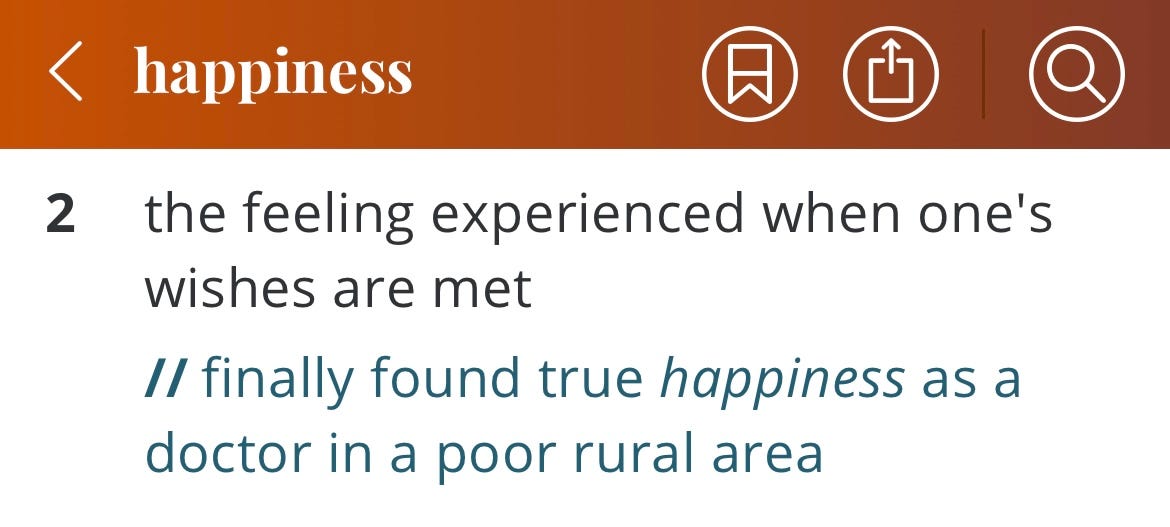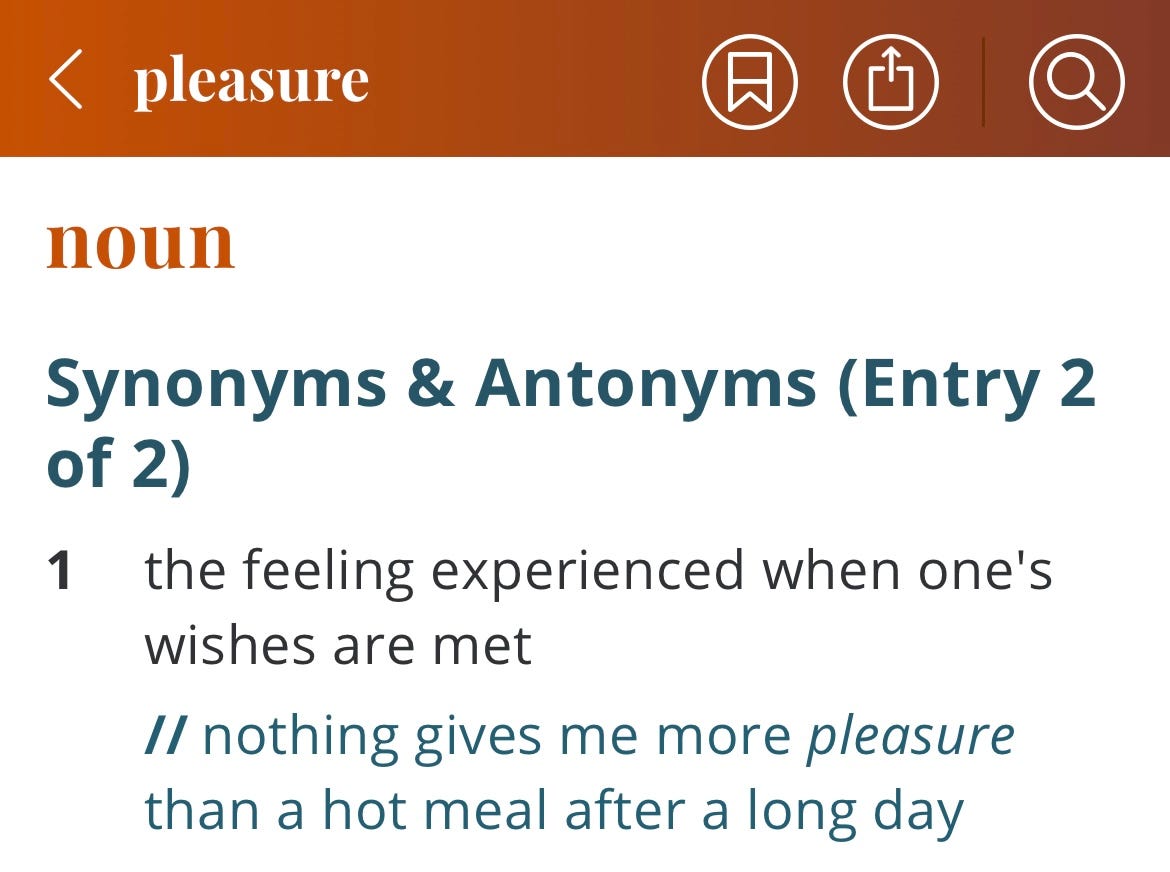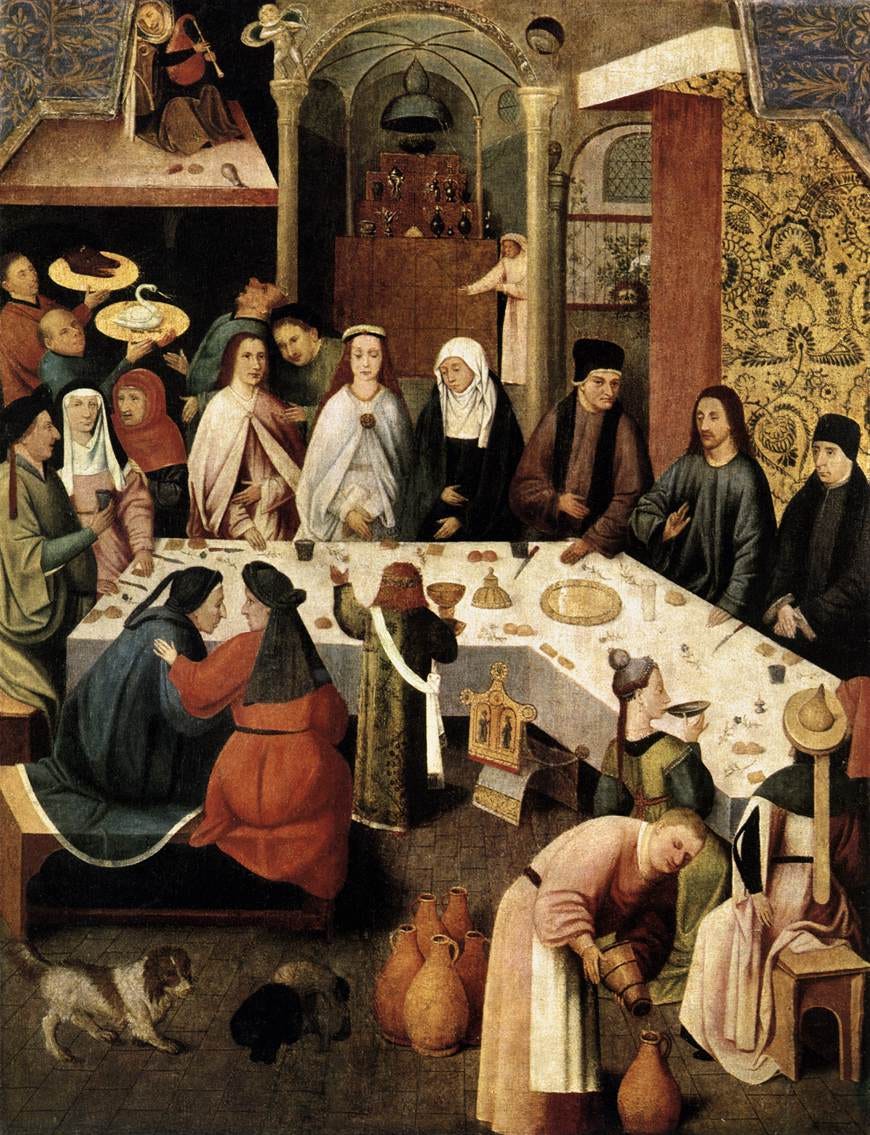How to Find Balance in a World without Any
Addiction//Asceticism, Hedonia//Eudaimonia, and Silencing Restlessness
1. Addiction & Asceticism
I don’t talk about it much anymore, but I used to be an addict.
I’m still not sure whether it was a genetic predisposition or if some part of my brain was set up like an obnoxious alarm that would blare at me to take more hits of any substance I’d already had too much of. But it’s always sort of been there – from when I was a kid stuffing myself with Halloween candy to a teenager drinking a fifth of liquor daily to a college student running marathons and ingesting an average of 1,100 mgs of caffeine. The impulse to not just enjoy something but to try and annihilate some emptiness in me through it.
Then after I became a Christian, I was taught to call everything I used to enjoy sin. My early mentors took “Do not love this world or the things in this world” to its extreme: soaking in pleasures tells God that you’re not fulfilled by Him. I remember once excitedly telling a mentor that I’d taken up reading fiction and received the news that it was a waste of time. So I gave it up.
While I really believe everyone meant well, all this really did was create a huge guilt complex that backgrounded my attempts to enjoy anything that wasn’t Bible. A nagging self-disgust for liking everything from a good meal to indie films to innocent romance to “secular” music.
Which turned me into a ticking clock that rung the second the ascetic stuff burned me out. I’d then use self-talk until I could convince myself it was okay as long as I only had a little bit.
But since I already had the genetic/neural disposition that told me to overindulge, I would. Thus creating many paralyzing, days-long stretches of shame. All of which could have been easily vetoed had someone just taught me that moderation was a possibility.
Sadly, these two polarities are pretty common: addiction or asceticism, overindulgence or shame about indulging altogether.
Neither extreme is very healthy
And maybe you don’t think this relates to you. But it might. You might not struggle with narcotics, but you might struggle when you realize there’s no chocolate cake left in the house, or when you open your Instagram craving for the slot machine of new likes and follows to drop down, or when you realize you don’t feel good about yourself until you’ve put in an extra hour at the office.
Theologian Kent Dunnington would argue that you feel this way because our society fails to provide “nonaddictive modes” for experiencing pleasure. In other words, our culture doesn’t offer any vision for the good life that doesn’t involve overconsumption.
Thus making addictive tendencies the norm rather than exception.
Dunnington says we need to squarely confront these realities. Whether you’re an addict or ascetic, paying attention to our desires is crucial — they’re a mirror that show “us who we truly are.”1
Which is why finding a balance between addiction and asceticism isn’t just a helpful idea, but a key feature among those who’ve learned to live the best lives.
Over the past nine years of following Jesus, I’ve built up a healthier orientation to pleasure. It’s not perfect; but definitely a huge improvement.
However, it’s always been challenging to put the “how” into language. But thankfully, plenty others have also tried to articulate this.
2. hedonia
Two Greek concepts come up a lot in this conversation: hedonia and eudaimonia.2
Socrates’ contemporary Aristippus was a big proponent for hedonia – the philosophy that life is all about accumulating pleasure, bettering our circumstances, and maximizing enjoyment.3
If the description didn’t already give it away, hedonia has a lot in common with our Western definition of happiness. Which, according to Merriam-Webster, is “the feeling experienced when one’s wishes are met.”
Interestingly, M-W’s definition for pleasure is the exact same.
But just like the pop-level vision for happiness, hedonia fails as a worldview.
The fatal flaw in hedonia is what’s called “adaptation.”4 It’s basically a way of saying that the human brain experiences every pleasure as a bell curve.
Small amounts are okay, medium amounts are fantastic, large amounts are too much.5
Think about the best pizza you’ve ever had. A few bites leaves you craving more, 3-4 slices leaves you happily fed, and 6-10 makes you wish you’d stopped at 3-4.
This general rule applies to just about everything that feels good.
We’re destined to “adapt” to the sensations of every pleasure, thus dooming us to either pursue the pleasure in larger doses or get so underwhelmed that we seek pleasures elsewhere.6
This is why the philosopher Diogenes critiqued Aristippus’ school of thought by calling it an “endeavor to adapt circumstances to myself, not myself to circumstances.”7
Living for hedonia puts oneself on a treadmill of wanting more and more – of trying to adjust your reality to match your momentary needs.
Which, again, because of adaptation, is exhausting and ultimately futile.
3. eudaimonia
On the other end, we have eudaimonia, which was Aristotle’s passion.8 It’s often considered the opposite of hedonia, since it’s more concerned with adapting to circumstances than forcing circumstances to adapt to you. Eudaimonia is a kind of contentment that comes from living in line with your values.
In psychological terms, we might call this “congruence.”9
To be congruent is to live out the virtues that you believe to be meaningful while also believing that you live out those virtues.
Which doesn’t always go hand-in-hand. Some people who strive to live righteously do so out of a guilt that tells them they’re never doing enough; others might find themselves doing the right things for wrong motives.
But eudaimonia, or congruence, is the sweet spot where the head, heart, and body are all on the same page.10
Studies show that eudaimonists tend to be happier than hedonists – usually because hedonists’ pursuit of immediate gratification gets in the way of life goals, relationships, and public welfare.11
And since eudaimonia is built around considering higher values before yourself, it’s especially popular among Christians.
However, I’m not sure it’s enough on its own.
4. Renunciation & Enjoyment
While many have suggested that Christian contentment looks like rejecting hedonia and pursuing eudaimonia, I don’t think that’s entirely true.
Christianity warns against overindulging in creation (Eph. 5:16; Rom. 1:24-32), but it doesn’t reject creation.
The impulse to reject creation because it’s not our home is a Gnostic idea, not a Christian one.12
While a eudaimonic congruence with the lifestyle of Jesus is, of course, an enormous part of what our faith’s about (1 Cor. 11:1; Eph. 5:1), we don’t have to interpret this as a total rejection of hedonia.
Mainly because, it doesn’t seem like Jesus Himself rejected all worldly pleasures (see Matt. 9:14-15; Luke 7:34, 15:32, 24:21-23; John 2:6-11). Jesus attended a wedding where He created 120-180 gallons of wine for a presumably already tipsy afterparty. He feasted enough to get accused of being a glutton and drunkard.
We’re never told to stop enjoying food or drink or nature; instead, we’re told that in whatever “we eat or drink” or “do,” we should just do it all to the glory of God (1 Cor. 10:31).
Inhabiting the world in an either/or posture of vilifying all pleasures or letting them dominate us - addiction or asceticism - is neither realistic nor helpful.
C.S. Lewis also noticed this tendency. So he recommended that we embrace what he called “the blessedly two-edged character” of Christianity.13
It’s the task of balancing the weird complexity of being able to call something in creation “good” without, on one edge, vilifying it, or, on the other edge, being mastered by it.
It’s a lot like what Aristotle called the “golden mean” or Aquinas called temperance (i.e., the ability to “not shun all pleasures, but just those that are immoderate or contrary to reason”14).
Yet Lewis’ idea isn’t just about finding a good midpoint, but about taking the whole spectrum of the pleasure impulse captive for the glory of God.
The theologian Christopher Watkin builds upon Lewis’ idea for the spiritual formation perspective. He argues that instead of looking for a “perfect middle,” we should approach pleasures through a spectrum of “renunciation” and “enjoyment.”15
Renunciation is a way of being in the world without condemning it, elevating ourselves above it, or assimilating to it.
Enjoyment is a way of soaking in the things God has called good, while also realizing that we could function perfectly well without them.
Out of everything I’ve read, this seems like the best model for balancing hedonia in the Christian life.
Renunciation helps us learn to say no to certain pleasures without racking up self-righteousness or judging those who partake. Enjoyment is the barrier that keeps us from experiencing a depressive lack of joy, fun, or delight.
As bioethicist Gilbert Meilander puts it, “Renunciation is necessary lest we immerse ourselves only in the thing, trying to grasp and retain it. Enjoyment is necessary lest renunciation become a principled rejection of the creation itself.”16
Or, in Lewis’ words, renunciation is the realization that, “Marriage is good, though not for me; wine is good, though I must not drink it; feasts are good, though today we fast.”17
And enjoyment is the realization that “Our Father refreshes us on the journey with some pleasant inns, but will not encourage us to mistake them for home.”18
5. The Blend
Rather than adopting a eudaimonia that rejects hedonia, we can see both as part of the necessary design for the good life.
As the social scientist Angela Duckworth points out, both hedonia and eudaimonia are crucial to human survival. If things like food and sex weren’t pleasurable, we’d risk starving or going extinct. And our drive to seek meaning and purpose helps us cooperate with others, care for those in need, and invest in beneficial projects.19
They’re more like a Venn diagram:
This isn’t to imply that they’re equals. In fact, our ability to live in line with our values is what allows us better self-control over our pleasures. For the Christian, the eudaimonic will always prelude the hedonic.
I think the liturgical traditions are better equipped to see this than evangelical protestants. Evangelicals tend to see the world through a “sacred/secular divide.” This can cause them to see something like fasting as “good” or “spiritual,” while considering the breaking of the fast as unspiritual or primal.
But the liturgical tradition hurdles this mindset by building both feast days and fast days into their calendar.
It’s like a built-in component to remind everyone of the beauties of Christian living: that we can celebrate life with God through renouncing pleasures just as well as through enjoying them.
Pleasure and purpose aren’t necessarily at odds; they only become at odds if we convince ourselves that they’re mutually exclusive.20
It’s almost as if we can turn our approach to pleasures into a virtue simply by renouncing the tendency to find meaning or purpose within or through them.
However, even though the spectrum of renunciation and enjoyment is very freeing, there’s plenty that’s forever off-limits. There’s no “Let me just strike a healthy balance with bank robberies.”
For many, any alcohol is too much alcohol. For others, any media that’s even remotely sexually suggestive is beyond their boundaries.
Temperance, as a rule, only applies to the things which God calls good. It doesn’t apply for adultery, murder, or heroin.
To circle back around, I didn’t have Chris Watkin’s language when I started carving away at my own addictive tendencies. But the process of transformation sort of brought me there on its own.
There’s a natural hangover effect built into every pleasure: eat too much, you feel sick; drink too much, you can’t focus the next day; work out too much, your joints give out.
And those aftereffects get very old.
I don’t trace back the growth process to any earth-shattering, Pentecostal-type transformation moments. I just remember a few mornings where I came to realize that I was valued by God and that His love was actually sufficient. Not just in an over-spiritualized, head-knowledge sense; but in a way that made me realize that this was true in the deepest parts of me.
And since that Love desires to work through me, I slowly lost interest in doing anything that might jeopardize my ability to perform that calling.
Drinking made me mentally and emotionally foggy, which hurt my relationships, career, schoolwork, and writing. So it had to go.
So now, everytime I feel a dopamine spike coming – be it through eating something incredible or drinking caffeine or getting attention on Substack (yes, sadly, that’s a new dopamine spike I’ve been having to tame) – and I feel that impulse to keep hitting the pleasure button, I try to recognize the craving for what it really is: the desire to shed the restlessness of the human condition.
So, rather than hit the button, I just take a deep breath and say Augustine’s line “My heart is restless until it rests in you.”
It’s not a perfect fix, but it reminds me of what I am and whose I am.
Kent Dunnington, Addiction and Virtue: Beyond the Models of Disease and Choice (Downer’s Grove, IL: IVP Academic, 2011), Preface.
M.F. Steger, “Hedonia, Eudaimonia, and Meaning: Me Versus Us; Fleeting Versus Enduring,” in J. Vittersø (Ed.), Handbook of Eudaimonic Well-Being (Springer International Publishing, 2016), 175–182.
Lujun Su, Binli Tang, & Jeroen Nawijn, “Eudaimonic and Hedonic Well-Being Pattern Changes: Intensity and Activity,” Annals of Tourism Research, Volume 84 (2020): 103008.
This is similar to the “hedonic treadmill.” See Philip Brickman & Donald Campbell, “Hedonic Relativism and Planning the Good Society,” in M. H. Apley (Ed.), Adaptation Level Theory: A Symposium (New York: Academic Press, 1971), 287-302.
Adam Grant & Barry Schwartz, “Too Much of a Good Thing: The Challenge and Opportunity of the Inverted U,” Perspectives on Psychological Science, 6 no. 1 (2011): 61-76.
Brickman, Campbell, “Hedonic Relativism and Planning the Good Society,” 287-302.
Horace, Epistle. i. 17. 23.
Aristotle, The Nicomachean Ethics, trans. by Martin Ostwald (New York: The Bobbs-Merrill Company, 1962), 1.10-1.11.
Susan Stephen, “Congruent Functioning: The Continuing Resonance of Rogers’ Theory,” Person-Centered & Experiential Psychotherapies 22 no. 4 (2023): 397–416.
(Which is why
’s The Next Right Thing is a brilliant guide toward learning to live well without being crushed by the pressures of doing more)Wujun Sun, Lei Liu, Yuan Jiang, Ping Fang, Xiaosheng Ding, & Guangjun Wang, “Why Are Hedonists Less Happy Than Eudaimonists? The Chain Mediating Role of Goal Conflict and Mixed Emotions,” Frontiers in Psychology 19 no. 14 (2023): e001.
Thomas Traherne, Centuries (Brooklyn, NY: Angelico, 2020), xii.
C.S. Lewis, God in the Dock (Grand Rapids, MI: Eerdmens, 2014), 158.
Thomas Aquinas, Summa Theologica, trans. Fathers of the English Dominican Province, Sacred Text Archives, 1974, I-II. Q60.
Christopher Watkin, Biblical Critical Theory (Grand Rapids, MI: Zondervan Academic, 2022), 492.
Gilbert Meilaender, The Taste for the Other: The Social and Ethical Thought of C.S. Lewis (Toronto, CN: Regent College Publishing, 2003), 32-33.
Lewis, God in the Dock, 158.
C.S. Lewis, The Problem of Pain (New York: HarperOne, 2015), 116.
Angela Duckworth, Grit: The Power of Passion and Perseverance (New York: Scribner, 2018), 146-147.
Richard M. Ryan & Edward L. Deci, “On Happiness and Human Potential: A Review of Research on Hedonic and Eudaimonic Well-Being,” Annual Review of Psychology 52 (2001): 141-166.











John O’Donahue, whose work I’ve read over and over again for 10 years now, wrote beautifully about asceticism in his book, Eternal Echoes. “As with all manner of spiritual discipline, we gain most when we are willing freely to choose what is difficult. When you practice even some small asceticism, your experience gains a new sense of focus. Any ascetical practice is difficult; you learn to walk a little on the path of self-denial. The intention of an ascetical discipline is not to turn you into a spiritual warrior, but to free you for compassion and love towards others and towards yourself.”
Reminds me of that line from East of Eden: "And now you don't have to be perfect, you can be good."
I too have had to learn how to live in a world where there are (1) temptations to sin or overindulge and (2) good things which are mixed up with these temptations. And where I'm at is resting in being able to enjoy that there are 'many pleasurable and good things in the world, but many of them might not be for me'.